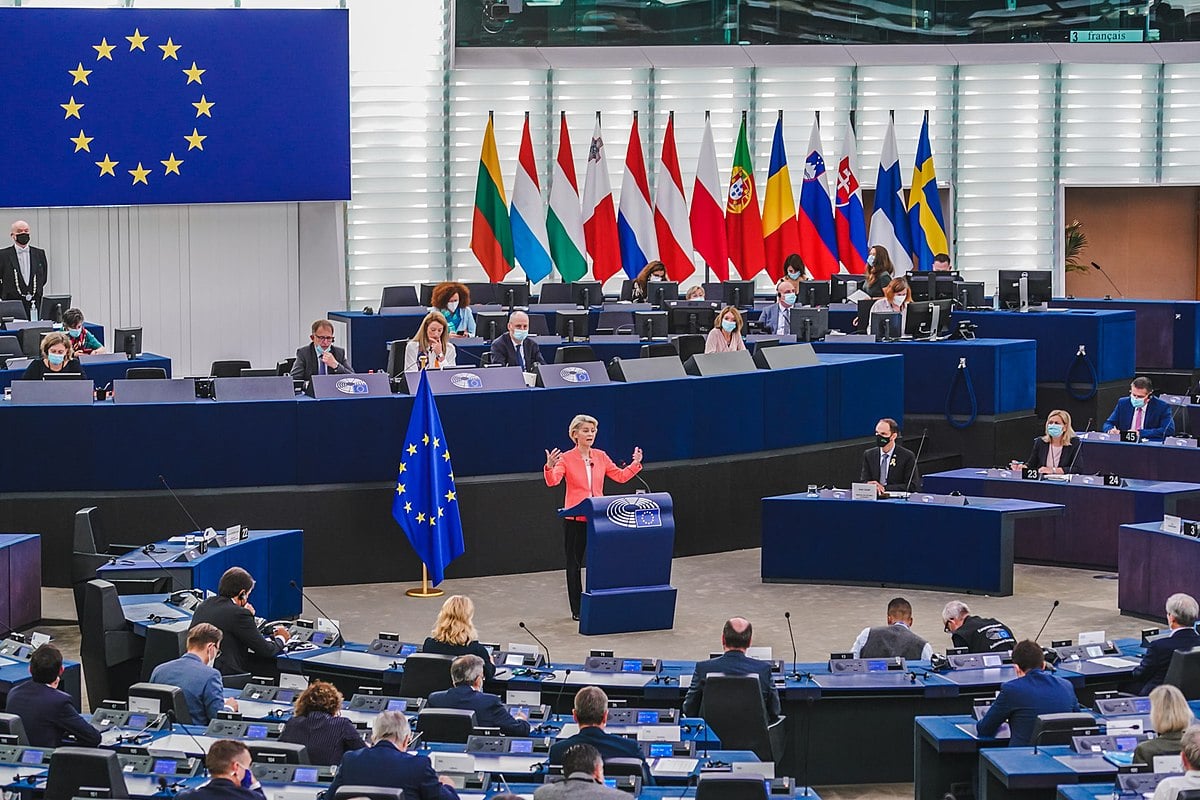

Dozens of MEP’sent a letter to PM Kyriakos Mitsotakis, urging Greece to “take all necessary measures” to prevent further sales of Greek-owned vessels to entities linked to Russia.
The letter was signed by a cross-party coalition of 36 Members of the European Parliament from several EU member states.
The letter, sent last Friday, warns that such transactions contribute to sustaining the so-called Russian “shadow fleet,” allowing Moscow to circumvent the G7-imposed price cap on Russian oil exports and maintain critical revenue streams amid its ongoing war in Ukraine.
The MEPs also advocate for tighter restrictions on ship-to-ship transfers—an increasingly common method used to obscure the origin of cargo, including Russian oil—and for stronger disincentives aimed at discouraging Greek maritime companies from engaging in the transport of Russian fossil fuels.
“These actions are critical not only to limit Russia’s financial capacity to continue its war against Ukraine,” the letter states, “but also to mitigate environmental and security threats—risks that Greece, as a prominent maritime nation, has already faced directly.”
The lawmakers reference a recent report by the U.S.-based Brookings Institution, which found that more than half of the vessels in Russia’s shadow fleet were purchased from Western European shipowners—with Greece identified as the largest single source. According to the report, Greek shipowners have earned an estimated $4 billion from the sale of aging tankers that ultimately became part of this opaque network.
These findings echo an earlier analysis by the European Parliament’s own research service. Lithuanian MEP Petras Auštrevičius, who spearheaded the initiative, commented: “Such irresponsible actions, driven by financial profit, not only perpetuate the suffering of the Ukrainian people, but also compromise European and Greek security, while increasing environmental risks.”
To date, the European Union has sanctioned 153 vessels linked to Russia’s shadow fleet, barring them from accessing EU ports and related services. However, no blanket ban currently exists on the sale or transfer of tankers to Russian buyers. Under existing regulations, EU entities must simply notify their national authorities and await approval before completing such transactions.
The MEPs are now calling on Athens to go further: to block sales of Greek-owned ships to high-risk or third-party buyers that may serve as intermediaries for Russia; to curtail ship-to-ship transfers in Greek territorial waters; and to intensify enforcement of maritime sanctions. They stress that continued revenues from oil exports are enabling Russia’s military campaign, while simultaneously posing ecological and geopolitical dangers.
In closing, the MEPs appeal to the Greek government to show solidarity with Ukraine. “We are counting on you and your Government to encourage Greek companies to stand with Europe in defending international law and security,” the letter reads.
There has been no immediate official response from Prime Minister Mitsotakis. However, a government spokesperson stated that “Greek authorities are doing their utmost to ensure compliance with EU sanctions and to prevent any circumvention within Greek jurisdiction.”
Greece, a global maritime power with a large shipping industry, has faced increasing scrutiny over its role in facilitating the transport of Russian oil, even after EU sanctions have significantly curtailed such activity.
The term “shadow fleet” refers to vessels—typically older, uninsured tankers—used by Russia to bypass international sanctions. These ships often operate under flags of convenience, manipulate or disable tracking systems, and conduct clandestine ship-to-ship transfers to disguise the true origin of their cargo. These tactics help evade the G7’s $60-per-barrel oil price cap, designed to limit the Kremlin’s war chest.
In recent months, pressure to take stronger action against the shadow fleet has intensified, particularly following incidents in the Baltic Sea where Russian-linked vessels were suspected of tampering with undersea infrastructure, including communication cables.
The EU continues to expand its maritime sanctions package, most recently blacklisting 153 vessels associated with shadow fleet operations. These ships are now prohibited from entering EU ports and from accessing insurance, maintenance, and other maritime services within the bloc.
